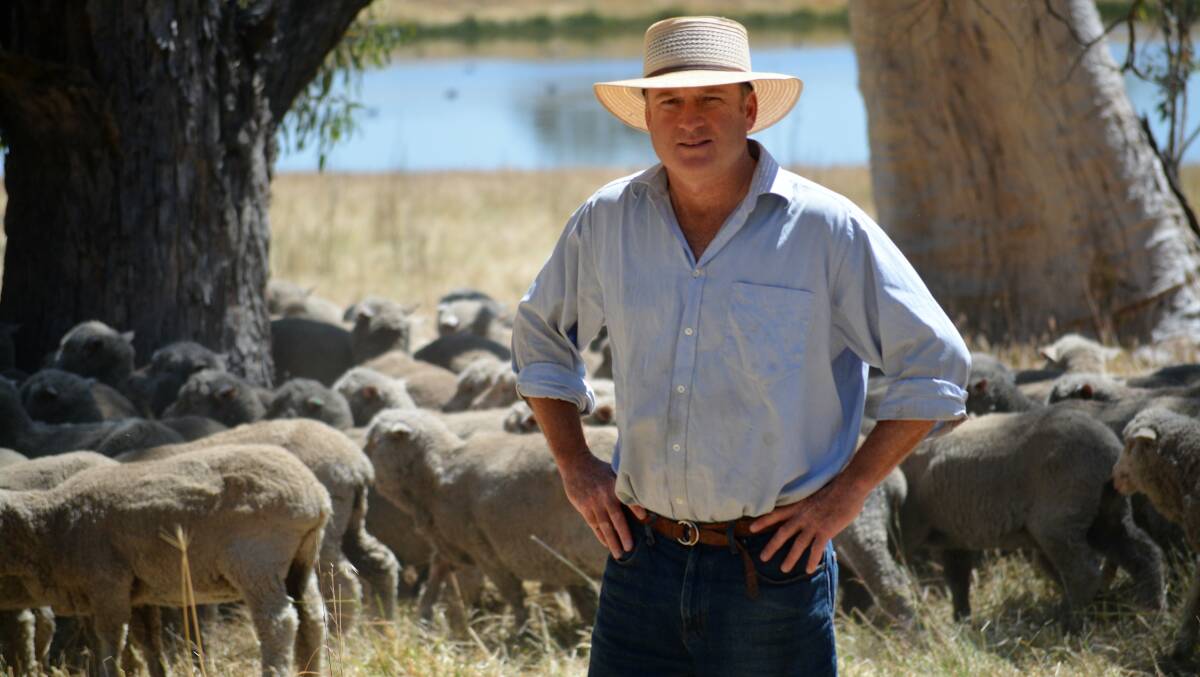
Australian Wool Innovation needs to review its spending, cutting smaller projects in favour of strategic investments that will benefit the industry in the long run.
Subscribe now for unlimited access to all our agricultural news
across the nation
or signup to continue reading
That's the message from board candidate Ed Storey.
Mr Storey, who is based at Yass, NSW, has recently finished a four-year term as president of WoolProducers Australia and has also been a director for the Australian Wool Exchange and the Australian Wool Testing Authority.
"I have the experience to ensure your levies are spent wisely and not wasted on too many small projects, but are spent to get the maximum benefit for growers," he said.
"Growers continue to vote to reduce the levy in Woolpoll each time, I want to improve growers trust in the board and the operations of the company and ensure it is a company for all growers that continues to improve its governance."
Mr Storey said it was vital to ensure AWI's expenditure matched its income.
"We have seen the company draw down reserves by $17 million last year," he said.
"The board will need to make sure the company is focused on core components of research and development and marketing, not a large number of small projects that don't deliver a return to growers.
"Maximising the efficiency of how AWI spends your levies is the number one priority."
Mr Storey said AWI needs to consult more efficiently, focus on the core business of relevant R&D and marketing, reviewing small projects to ensure the levy dollars are spent in the most efficient way.
"For example, I am very concerned about WoolQ," he said.
"Many millions have been spent, and there is almost nothing to show for it.
"AWI needs to work better with other industry service providers such as AWTA and AWEX to avoid duplication and respect levy payers money.
"Being a recent former director of these organisations I can bring real value to shareholders levies and reduce waste and duplication."
Mr Storey said AWI needs to focus on research and development projects that improve on-farm efficiency and the long term cost of production.
"I support the investment with Adelaide University on potential new ways to harvest wool, but there have been opportunities where private investment has happened and AWI have potentially missed helping the wider industry," he said.
"The effectiveness of marketing campaigns are hard to measure but we need programs that are efficient, effective and tell our sustainability story really well.
"China will continue to be our main consumer, but other markets such as India offer real opportunity and new growth potential.
Mr Storey said by 2050 he'd like to see wool "universally recognised as the most sustainable fibre on the planet, both in terms of our product and our production systems" and have the industry growing and highly profitable with young farmers wanting to return land use to wool growing.
Wool's sustainability credentials are also something he feels strongly about.
"AWI will need to do R D to underpin correct methodology to assess our production systems," he said.
"Otherwise other parties will define it for us.
"We need to, where we can, control the agenda.
"AWI have done some good work in this area, but collaboration with other parts of the industry could lead to a more efficient use of your levies and better outcomes at lower cost.
"Our changing climate and how the genetics of our sheep work with that may also need some R & D so our industry can grab opportunities.
"This has to then be combined with the marketing team to ensure our message gets across."
Mr Storey said one of the things he was most proud of was his role in the development of the Trust in Australian Wool program.
"It showcased all of our industry's first class health, welfare, bio-security and sustainability world leading practises as well as the outstanding quality of the national wool clip," he said.
"It was very well received by AWI teams in Europe, Japan and India."
This story is part of a series of AWI board candidate profiles being published in the lead up to the election on November 17.


